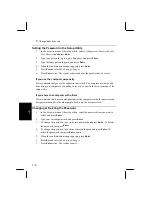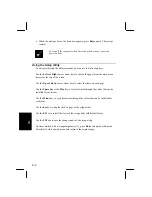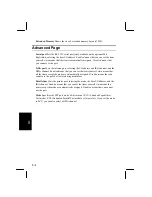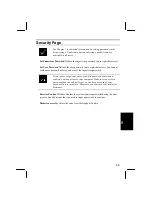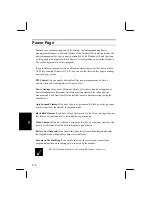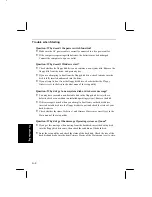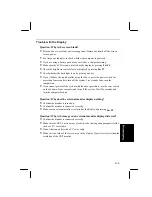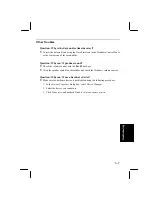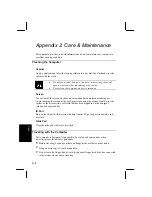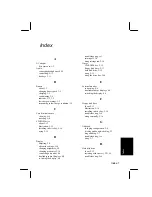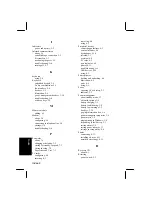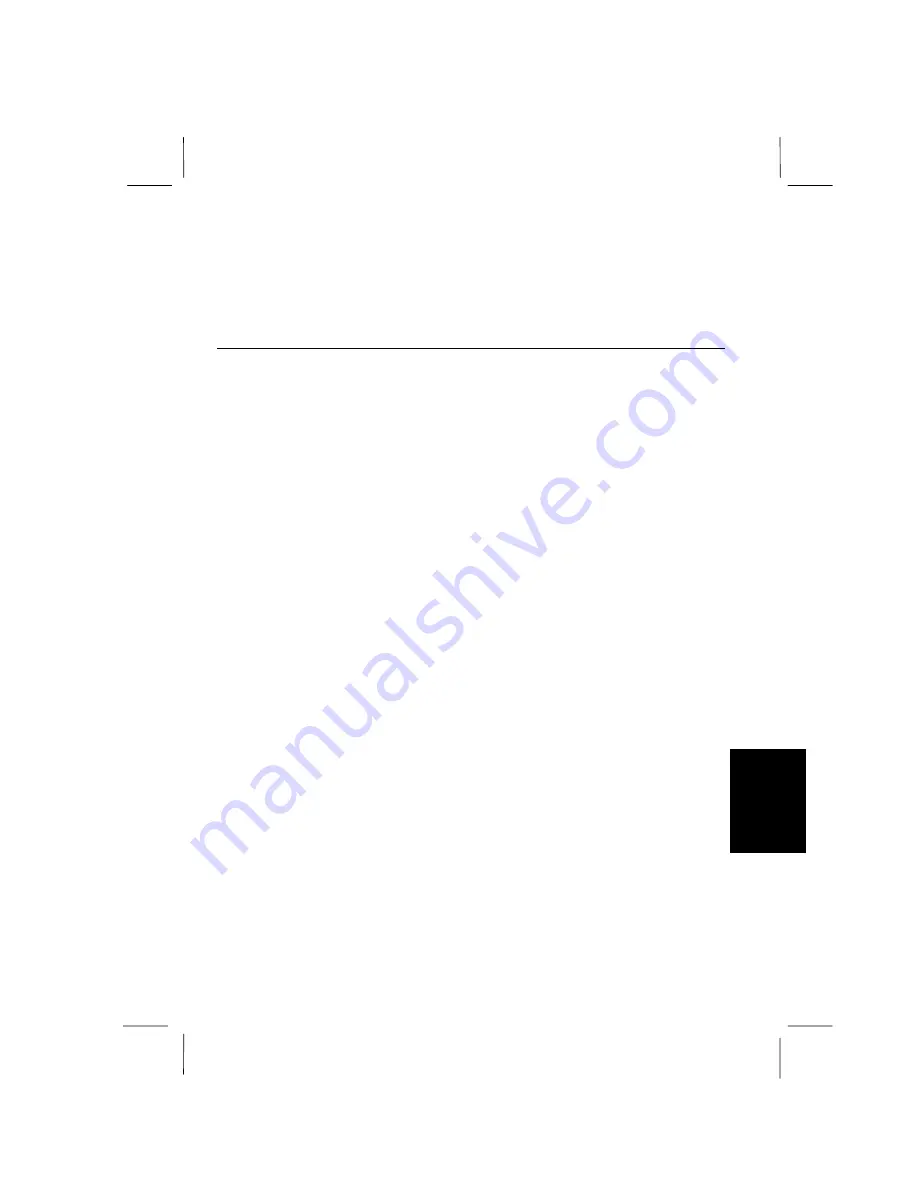
A-1
T
rou
bleshoo
ting
Appendix 1: Troubleshooting
This appendix describes how to troubleshoot problems with your computer.
Common Problems
Problems with your computer can be caused by something as minor as an unplugged
power cord or as major as a damaged hard disk drive. The information in this
troubleshooting section is designed to help you find and solve minor problems. If
you still have a problem after trying all the suggested remedies in this chapter,
contact your dealer.
The problems that you might encounter can be divided into two basic categories:
hardware and software. Hardware problems can be further divided into being of an
electrical or a mechanical nature. You will know you have a hardware problem if, for
example, the screen is blank, or the computer cannot recognize the disk drives.
Software problems can occur at several levels. Both your operating system and your
software application programs are capable of generating errors and error messages.
If you encounter a software error, try to determine if the error message is from your
operating system or from an application program, and refer to the appropriate
manual for possible remedies.
You can also refer to the Windows 98 manual or Windows Help program to solve
the problem. To access the Help program, select
Help
from the
Start
menu. It also
gives you
Troubleshooting
tips and an
Index
.
Successful troubleshooting is the result of careful observation, deductive reasoning,
and an organized approach to solving the problem. If you encounter a problem,
begin by performing a careful visual inspection. Check the exterior of the computer
first. If no lights are displayed, check the battery charge or power outlet, the plug and
power cord, and any power switches that may affect your computer. If the computer
has been connected to any peripheral devices, look for loose or disconnected cables.
You may also need to check the fuses and breakers in your electric box. A few
common problems and suggested solutions are presented in the examples which
follow.





